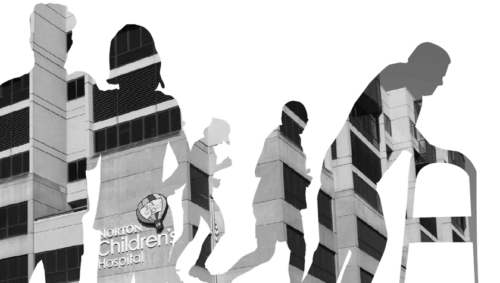 Building healthy, resilient communities is one of the five key strategies in “An Economic Agenda for a Thriving Commonwealth.” For communities to thrive, all people need access to affordable health care, secure housing, supports for people with disabilities, and protection from predatory lending and destructive criminal justice policies. By improving policies in these areas, we can build pathways out of poverty, address racial and geographic disparities, alleviate the root causes of crime and addiction, save the state money and make us all stronger together.
Building healthy, resilient communities is one of the five key strategies in “An Economic Agenda for a Thriving Commonwealth.” For communities to thrive, all people need access to affordable health care, secure housing, supports for people with disabilities, and protection from predatory lending and destructive criminal justice policies. By improving policies in these areas, we can build pathways out of poverty, address racial and geographic disparities, alleviate the root causes of crime and addiction, save the state money and make us all stronger together.
Unfortunately, Kentucky has high rates of cancer, heart disease, addiction, incarceration, and household debt, all of which especially hurt communities facing structural barriers to health and economic prosperity. These diminish our ability to move forward together as a commonwealth, whereas the policy ideas below will help create a healthier and more prosperous state for all of us.
Remove New Barriers to Care in Medicaid
When Kentuckians are healthy and can get to a doctor as needed, their quality of life and their contributions to our commonwealth improve. Removing barriers to health care can move us forward as a more productive and prosperous state. Yet the policy barriers to health care coverage being pursued by the current administration would reduce enrollment in Medicaid by nearly 100,000 people, while increasing state administrative costs. This means the state would pay more to cover fewer people. Kentucky must immediately abandon these barriers to Medicaid coverage, including the work requirement, unaffordable premiums and burdensome reporting requirements. Furthermore, the state should not remove access to benefits, such as dental and vision coverage and transportation assistance.
Make Health Insurance More Affordable
For Kentuckians who earn too much to qualify for Medicaid or adequate federal subsidies but who still struggle to afford health coverage, the state can implement policies that will reduce the cost of health care. By introducing a state-developed Medicaid buy-in option for those seeking coverage on the exchanges, Kentucky could provide an additional alternative for consumers and potentially lower premiums overall. The state should also work with the federal government to create a reinsurance program that helps insurers cover those with especially costly conditions. This program will have the effect of lowering premiums for everyone, whether covered by a Medicaid buy-in option or private insurers. Such programs save the federal government money on the cost of premium subsidies, and those savings could be used by the state to reduce its contribution to reinsurance. Combined, these two programs would make coverage more affordable for Kentuckians.
Support Healthy Communities and Local Economies through Agriculture
Agriculture in Kentucky is an essential component of economic development, especially in our rural communities. As revenue from the Master Settlement Agreement declines with reduced tobacco consumption, the state should ensure continued robust funding for local agricultural development and diversification efforts, health initiatives and marketing through the Kentucky Proud brand (the latter of which the state should strengthen to improve direct farm impact). The state should also protect funding needed to match federal programs supporting farmers and our food economy – many of which also address hunger and health/nutritional needs in our communities such as the Senior Farmers’ Market, Kentucky Double Dollars, Summer Feeding and Farms to Food Banks programs.
Provide Community-Based Care for Seniors and Kentuckians with Disabilities
Many Kentuckians who need specialized care due to the complexity and seriousness of their medical needs are left without it because of inadequate state resources. There are currently 8,000 individuals on waiting lists for the Supports for Community Living and Michelle P. waiver programs serving Kentuckians with disabilities who require frequent and routine care and wish to remain in their home or community. The state should reduce these waiting lists and ensure more Kentuckians receive the care they need in the communities they call home by providing additional funding to open up more slots. Similarly, many older Kentuckians who need nursing care are in institutional settings but could be cared for at home. Because institutions are more expensive, Kentucky could shift more of its elder care spending to community-based care through a Home and Community Based Services (HCBS) Medicaid waiver and actually save money. Currently, we rank second from last in the nation in the share of state spending devoted to community-based care.
Provide Treatment for Kentuckians with Mental Illness and Addiction
Our state’s community mental health centers (CMHCs), a major provider of mental health including addiction services, are chronically underfunded. In recent years, at the same time they have been expected to radically increase pension contributions, CMHCs’ state funding through the Department for Behavioral Health and Intellectual Disabilities has been cut, with the Department experiencing a nearly 25 percent overall cut since 2008 after adjusting for inflation. Restoring funding would increase opportunities for Kentuckians to get the care they need. Going further, Kentucky could provide services through a new Medicaid waiver program for those with serious mental illness and addiction who have an income up to 150 percent of the federal poverty line and would like to remain and receive support in the community. Kentucky should also increase funding for evidence-based residential and outpatient drug treatment and dedicate public funding for needle exchange sites across the commonwealth, which serve as an opportunity for treatment referral and can limit the spread of Hepatitis C and HIV. Health care costs associated with these two conditions are particularly expensive, so spending more on prevention will likely save the state resources overall.
Safely Reduce Inmate Population through Commonsense Reforms
Kentucky’s criminal justice policies too often increase incarceration without making our communities any safer. To reduce the prison population, the state should reduce criminal penalties for low-level, nonviolent crimes such as drug possession, low-level trafficking, theft and failure to pay child support. We should also repeal the ineffective gang law passed in 2018, cap the time served by probationers or parolees for technical violations — such as a missed appointment or for substance abuse treatment setbacks — and decriminalize and regulate marijuana use. Juvenile justice reforms are needed to keep youth out of the adult system and expand opportunities for diversion from the court system. These policies would also begin to address racial disparities in our criminal justice system and right-size punishments to fit crimes in order to focus on rehabilitation and stronger, safer communities.
Expand Alternatives to Incarceration
Incarceration carries its own costs and consequences for individuals and their families, for communities and our commonwealth. When the state can safely pursue justice and rehabilitation through alternatives, it should. In order to prevent the incarceration of low-risk, low-income Kentuckians awaiting trial, money bail should be eliminated in most cases. Restorative justice practices should be used whenever possible by engaging victims, offenders and community members in an effort to put things right. The state should expand drug court and mental health and veterans courts, which provide Kentuckians with needed treatment rather than incarceration. Greater investment should be made in intervention programs, especially for youth, which have been shown to reduce gang activity and violence. To increase the likelihood that those with few economic resources are able to access sentencing alternatives and receive a high-quality defense, public defenders need to have more manageable caseloads and adequate salaries.
Allow Undocumented Immigrants to Drive Safely and Legally
Removing barriers that Kentuckians face getting to work, school and the grocery store each day can help strengthen our economy and our communities. Allowing undocumented Kentuckians to apply for and receive Kentucky drivers’ licenses would increase the number of tested, insured drivers on our roads and make it easier for people to participate in their communities and contribute to our economy each day. Such licenses can be fully compliant with federal REAL ID laws, and should be used to enforce traffic and not immigration laws.
Protect Kentuckians from Predatory Lending Practices
Nearly 200,000 Kentuckians are caught in debt traps caused by payday loans which charge interest and fees of up to 391 percent when annualized. Over 6,000 Kentuckians take out 30 or more of these loans per year. To protect small-dollar, short-term borrowers, Kentucky should cap all forms of lending to a maximum of 36 percent annualized interest, and should ensure that all charges associated with lending are considered interest for purposes of the cap.
Protect Kentuckians from Unnecessary Eviction and Unlivable Rental Housing
Safe and secure housing is foundational to the success of each and every Kentuckian. However, there is no statewide standard of quality for rental housing or process for eviction, leading to disruptions in housing security which can send families into a tailspin. Kentucky should pass a statewide Uniform Residential Landlord and Tenant Act to provide consistent protections from poor living conditions and unwarranted evictions for renters, and to limit the associated financial burdens for landlords.


